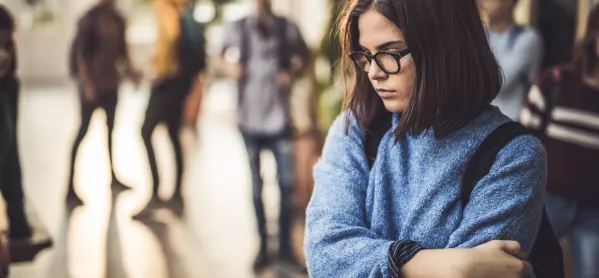- Home
- Bullying worse in private schools, new research shows
Bullying worse in private schools, new research shows

Private school students are more likely to experience bullying than their state-educated peers, a new study has found.
They are also younger when they first have an alcoholic drink, and are more likely to engage in risky behaviour than students at state schools.
While private school students are less likely to have behavioural problems, a new study has found that they are 15 per cent more likely to experience bullying during secondary school and 24 per cent more likely to take risks.
The new report - based on data from the Twins Early Development Study, a sample of twins born between 1994 and 1996 - found that attending private school was of “little benefit” and even had negative impacts on some aspects of development.
News: Ofsted ratings account for under 1% variance in GCSEs
Related: Black pupils warn of n-word abuse in UK private schools
Quick read: Drug gangs targeting private school pupils, warns Ofsted
Led by the University of York, and based on data from more than 2,600 people, it found that students who attended private school reported experiencing more “peer victimisation” over time - this included being bullied, social manipulation, attacks on property and being subject to verbal or physical abuse.
Lead author of the study Professor Sophie von Stumm said the results were surprising, as the researchers had expected “much more positive outcomes” for privately educated students.
Professor Stumm said: “Private schools expend greater educational resources than state schools for their pupils, including higher-qualified teachers and better pastoral care.
“Because of this difference in support, we expected much more positive outcomes for private school students - we thought that they would exceed their state-school peers in areas such as volunteering, practising safe sex and self-control, which require being considerate of others and the consequences of actions.
“In fact we found little difference between private and state school students in these areas and when it came to bullying, risk taking and early consumption of alcohol, private school students fared worse.
“Our study adds to a growing body of evidence that many of the alleged benefits boasted by private schools are actually a product of their selective intake of students rather than the value that the schools add.”
While over time private school students showed an increase in wellbeing and a decrease in behavioural problems compared with state school students, they were also younger when they first had an alcoholic drink.
When examining student behaviour, the study found “significant differences” between private school and state school students when it came to having six or more alcoholic drinks on one occasion and trying drugs.
On average, private school students were also less risk-averse and more likely to take part in volunteering, and they were older than their state school peers when they first had sexual intercourse.
However, when family background, prior school performance and prior academic ability were controlled for, only attitudes to risk taking and the age at which students first tried alcohol were predicted by school type.
The study looked at data from 2,682 individuals who took part in a large cohort study. In total, 2,413 attended state schools and 269 attended private schools.
The study - Does private education make nicer people? The influence of school type on social-emotional development - analysed data from questionnaires conducted with students between the ages of 12 and 21 on factors including wellbeing, peer victimisation, sexual behaviour, substance use and antisocial behaviour.
Professor von Stumm added: “In the wider population we often assume that a private education will have a very positive impact on a child’s development. Our study suggests we have unrealistic expectations of the virtues of a private education, when in reality many of its benefits result from the legacy of a privileged family background.
“Interrogating the role of private schools in Britain is important because we live in a country where the majority of leaders in politics, business and in the arts were privately educated.”
Julie Robinson, chief executive of the Independent Schools Council, said: “First and foremost, the health, safety and wellbeing of every child is always the absolute priority for schools and should a pupil ever have concerns about bullying or abuse of any kind they should report it immediately.
“Reading this report, it is important to note this research is based on a sample size of just 269 independent school pupils - the UK independent sector as a whole educates around 630,000 children.
“We know from other reports, for example research into soft skills and mental toughness which was carried out by AQR International and included 9,000 independent school children, that pupils are more controlled, committed and like a challenge.
“Separately, research from the Centre of Evaluation and Monitoring at Durham University based on around 8,000 independent school pupils and 76,000 state school pupils, has shown that attending an independent school in England is associated with the equivalent of two additional years of schooling by the age of 16.”
Keep reading for just £1 per month
You've reached your limit of free articles this month. Subscribe for £1 per month for three months and get:
- Unlimited access to all Tes magazine content
- Exclusive subscriber-only stories
- Award-winning email newsletters



